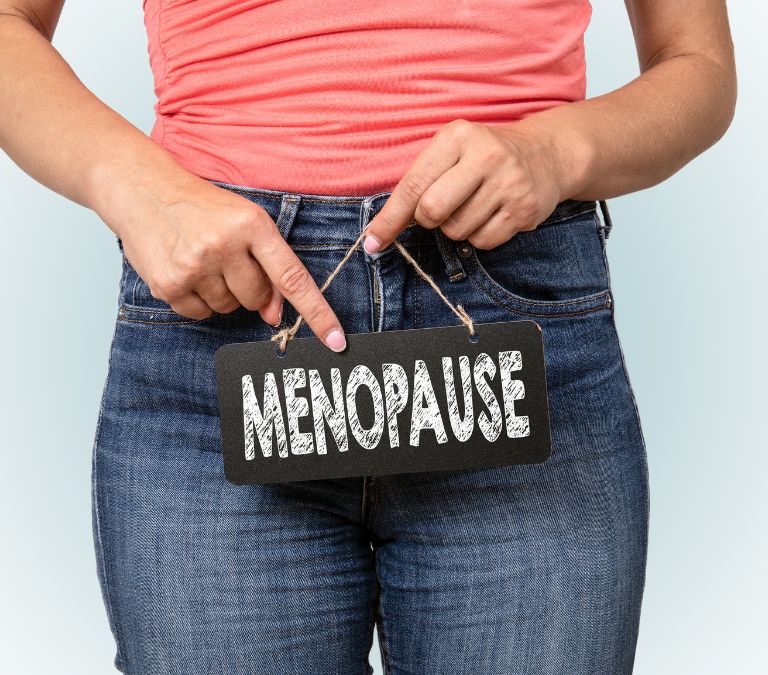Lymph, lymph nodes, and lymphatic vessels, are different components of the lymphatic system. The lymphatic system is a comprehensive organ system complementary to the immune and circulatory systems.
The lymphatic system is connected to almost every body tissue and serves as a medium for the transportation and circulation of lymph throughout the body, just like blood. While blood and lymph help circulate oxygen and important nutrients throughout the body, the lymph is specific for removing metabolic waste from body cells and transporting lymphocytes, hormones, and antibodies to areas around the body.
Unlike the blood, the lymph is colorless and only circulates in the lymphatic system. With the mechanism of the lymph and lymphatic system, microbes, toxins, organic wastes, and other debris are successfully filtered off the blood. Generally, the lymphatic system is grouped under the circulatory system, but due to its effects in fighting off microbes and toxins, it has been ascribed as a part of the immune system.
Understanding the Lymphatic System and its Components

The lymphatic system is distinct in mammals and certain birds. It comprises the lymphatic vessels, the lymphocytes, the lymph nodes, the tonsils, the appendix, the thymus, the bone marrow, and the spleen. All of these components help in the achievement of optimal functioning of the lymphatic system.
The lymphatic system is different from the cardiovascular system in so many ways. Unlike in the cardiovascular system, where blood is transported by the heart, which serves as a pump, lymph isn’t transported by any pump. It means that specific mechanisms of the body achieve the movement of lymphatic fluids through the lymphatic vessels. Below are the components of the lymphatic system:
Lymphocytes
The lymphocytes are the main cells of the lymphatic system responsible for destroying foreign or unusual cells. The lymphocytes are divided into the B cells and the T cells. The T cells are developed in the thymus and are responsible for killing invaders and destroying foreign cells in the body.
On the other hand, the B cells are produced in the bone marrow and are responsible for producing antibodies. Antibodies combine with antigens of harmful or foreign cells to label them as harmful and for eventual destruction. The action of the lymphocytes is the fundamental feature of the immune system.
Lymphatic Vessels
Like in veins and arteries of the cardiovascular system, the lymphatic vessels serve as a medium for transporting lymphatic fluid. The lymphatic vessels are a complex and crude system of vessels reaching every area of the body and helping the lymphatic fluids to collect wastes and toxins from every area of the body. The wastes collected by the lymphatic fluids are transported through the lymphatic vessels and taken outside the body through urine, feces, and sweat.
Lymph Nodes
The lymph nodes can be envisioned as filtering stations. In these filtering stations, substances in the lymphatic fluid are filtered by the destructive nature of the lymphocytes. There are numerous lymph nodes in the body.
Thymus
The thymus helps in the production of T cells. Most of the T cells in the body are produced by the thymus even before birth. The thymus is located under the breastbone.
Spleen
The spleen helps produce antibodies that serve as the body’s army against infection and invasion by foreign substances.
Bone Marrow
The bone marrow is responsible for producing white and red blood cells. The white blood cells, also known as lymphocytes, are the main cell component of the lymphatic system.
Congestion of the Lymphatic System
The lymphatic system is a comprehensive connection of vessels that can be seen as “tiny pipes.” Just like how your house’s plumbing system sometimes gets clogged, the lymphatic system can also be clogged, impairing the movement of lymphatic fluids through the lymphatic vessels. Congestion of the lymphatic system is harmful to menopausal women because the problem of hormone scarcity is already a problem. If the little hormones left in the body still can’t be transported effectively, more complications to the general menopausal health are experienced.
The link between the Lymphatic System and Menopause
Menopause is a natural phase of every woman’s life when ovarian failure makes it impossible to get pregnant. As women progress further in age, the ovaries slowly and eventually become unable to produce eggs. While the ovaries are also major producers of sex hormones like estrogen and progesterone, ovarian failure may lead to a decline in the amount of these hormones in the body.
As mild as this may seem, it is important to know that decline in hormone levels is the main cause of many menopausal symptoms. During menopause, the average woman becomes more vulnerable to cardiovascular diseases, hot flashes, weight gain, vaginal dryness, depression, anxiety, bloating, and sleep disruption.
The lymphatic system is rarely mentioned in many discussions and research on menopause. However, menopause has been linked frequently to problems related to the lymphatic system. Today, numerous menopausal women suffer from bloating, swollen legs and ankles, firmness of the breasts, and protruding stomach. All of these problems have been reported more in menopausal women, and while studies haven’t identified menopause as a direct causative agent, researchers have indicated that fluctuating hormones could result in problems with the lymphatic system.
A healthy lymphatic system facilitates the easy transport of important hormones in the body. In getting to menopause, a healthy lymphatic system is as important as a healthy cardiovascular system. Due to the role of the lymphatic system in the transportation of important hormones and enzymes, maintaining a healthy lymphatic system must be given prominence.
Symptoms of a Congested Lymphatic System
Since the lymphatic system is important for detoxifying and cleansing the body, congestion at any part can result in inflammation and certain diseases. The lymphatic system touches every region of the body, transporting lymphatic fluids. If the pressure of flow is reduced, the cells in the vessels might end up being poisoned by the waste they wish to take off the body. With this, problems like inflammation, swelling, infections, and diseases become imminent. Some common signs to show if your lymphatic system is backed up are:
- Lack of energy
- Inability to lose weight
- Morning mucus
- Bloating and swelling
- Frequent cold or flu
- Soreness and stiffness, especially in the morning
- Constipation
- Stiffness, pain, and pressure in the spine and shoulders region
- Breast swelling
- Itchy and dry skin
Causes of Congestion in the Lymphatic System
Dehydration
Since lymphatic fluids are predominantly water, dehydration can lead to low flow in movement in the lymphatic vessels. Dehydration can increase the thickness of lymphatic fluid to the extent that it becomes viscous-like and unable to move freely through the lymphatic vessels.
Sedentary Lifestyle
The lymphatic system does not have a pump. However, the lymphatic fluids are still transported through the lymphatic vessels. To achieve this, bodily movements and other factors can facilitate the movement of this fluid through the body. Lack of movement can cause stagnation of lymphatic fluid, which in many cases can be very bad.
Exposure to Chemicals
In many cases, exposure of the body to harmful chemicals can make extra detoxification tasking for the lymphatic fluid. It might take a long time for the chemicals and toxins to be taken off the body, leading to congestion and backup harmful chemicals in the lymphatic vessels.
High Intake of Processed Foods
Unhealthy foods containing high sugar and bad fats can cause a decline in the speed of movement of lymphatic fluid.
Natural Ways to Boost the Lymphatic System
While many medications have been extra helpful for developing healthy lymphatic systems, the risks and numerous side effects have plagued the entire process. It made many people resort to natural remedies to boost the lymphatic system. Here are 10 natural remedies for boosting the lymphatic system.
Consuming More Fruits and Veggies

For a long time, fruits and vegetables have been the best and most effective dietary options. Even with more different foods daily, fruits and greens are still considered the best dietary options for developing and maintaining optimal health.
Other than the effects of fruits and vegetables on general health, studies have shown that the high water content of certain foods can be important in lubricating the lymphatic vessels and ensuring proper drainage of these “pipes.” Other than lubricating the vessels, fruits and vegetables have been proven to possess cleansing powers that can be important in facilitating the detoxification of the lymphatic system.
Like the rest of the body, the lymphatic system depends on nutritious diet options for optimal functionality. To play a part in helping the lymphatic system, a high intake of fruits and vegetables can go a long way in decreasing the stress exerted on the lymphatic system.
Going to Bed in Loose Clothes

In most cases, natural body detoxification by the lymphatic system occurs late at night. During this time, the average human is asleep and in a state of unconsciousness. To help facilitate the detoxification process, wearing loose-fitting clothes is advised. Wearing tight or restrictive clothes to bed will not give enough space and freedom for the lymph in the lymphatic system to move. Clothes that dig into the groin and arm areas can be even more dangerous because the groin and arm areas are locations of lymph nodes. Restricting the lymph nodes can lead to the buildup of lymph in certain areas being restricted.
An additional advantage is wearing loose-fitting garments to bed can help manage hot flashes at night. Since hot flashes are the most common menopausal symptoms, menopausal women are advised to avoid wearing tight or restrictive clothes as it could aggravate hot flashes and night sweats.
Exercises and Physical Activities
The movement of lymph in the lymphatic system is heavily dependent on the actions of the skeletal muscles and other factors like the pulsation of arteries and changes in pressure of the thorax region during breathing.
During menopause, many women adopt a sedentary lifestyle. Worldwide, many women see menopause as the body’s way of communicating retirement; as such, they engage in fewer physical activities and spend more time on the couch. Studies have shown sedentary lifestyle could reduce the rate of movement of lymph in the lymphatic system.
Active movement or engagement in physical activities can increase the pressure in the lymphatic system. Aerobic exercises are the most effective exercises for maintaining a healthy lymphatic system. Aerobic exercises include cycling, swimming, running, jogging, and rowing. Tough exercises are not compulsory. Just a small walk could go a long way in increasing the pressure of the lymphatic vessels. The declining hormones are guaranteed fast and unrestricted movement through the lymphatic system into specific body regions.
Dry Brushing
Dry brushing is a type of massage that involves brushing the skin with a dry and stiff-bristled brush. Doing this routinely can facilitate circulation and detoxification in the lymphatic system, eliminate scaly skin, and improve digestion. For a long time, people have adopted the use of a dry brush to aid the functionality of the lymphatic system.
By brushing the skin’s surface with a significant amount of pressure, tissues are pressured to aid fluid movement through the lymphatic system. Other than helping with the maintenance of a healthy lymphatic system, dry brushing can also be important in the development and maintenance of healthy and vibrant-looking skin. Routine dry brushing can help stimulate the oil and sweat glands and, at the same time, boost circulation.
Interchange Hot and Cold Showers

Studies have shown that lymphatic vessels expand when exposed to heat and contract when exposed to cold. Alternating between a hot and cold shower is a form of hydrotherapy that takes advantage of the temperature and pressure of water to free up the lymphatic vessels and increase circulation in the lymphatic system. Generally, a hot bath cannot be better than a cold bath.
Depending on the motive, hot and cold baths can help the body in diverse ways. While hot showers can help improve sleep, increase circulation, and relax muscles, cold showers can help retain the skin’s natural oils and reduce itchiness.
To help the lymphatic system, you can alternate between hot and cold showers after dry brushing in the morning. The time difference between hot and cold water should be at least 90 seconds, and the bath should always end with the use of a cold shower. Pregnant women and patients with cardiovascular diseases are advised not to practice this form of hydrotherapy.
Drink Plenty of Water
Dehydration is the leading cause of congestion in the lymphatic system. Lymph fluid is predominantly water and other materials. When there isn’t enough water in the body, lymph becomes thicker and more static, leading to congestion. Generally, dehydration during menopause can increase the severity of many symptoms. Menopausal women who do not drink enough water have reported more severe headaches, forgetfulness, brain fog, hot flashes, and bladder infections. Menopausal women are advised to drink more water to facilitate the movement of lymphatic fluid.
You do not have to overdrink to get hydrated. To help, you can follow dietary requirements of drinking up to 10 glasses of water daily. For complementary reasons, menopausal women are advised to take a sip of purified water every 15 minutes, especially during days when the sun shows off.
Herbal Teas and Supplements
Herbal supplements and teas have been used to assist the lymphatic system in the elimination of toxins. Because keeping the lymphatic system clean and healthy is important, certain herbs have been proven to help improve general lymphatic health.
Herbal Teas
Certain herbal teas have improved lymphatic action by detoxing and lubricating the lymphatic vessels. Some common herbal teas for promoting a healthy lymphatic system include goldenseal, red clover, ginger, mullein, sarsaparilla, olive oil tea, and wild indigo root. It is strongly advised to include these teas in your daily diet options. Drinking herbal teas regularly during the day is advised to get the best results. However, regular herbal teas aren’t recommended for pregnant women or women already under meditation. An appointment with a naturopath or herbalist is advised for these women.
Herbal Supplements
Some herbs strongly recommended for developing and maintaining a healthy lymphatic system include cleavers, narrow-leafed pale purple cornflower, astragalus, knotted figwort, dandelion, wolf’s foot clubmoss, and pot marigold.
Belly Breaths
Deep breaths can aid the movement of lymphatic fluid in the body. Belly breathing involves inhaling so much air to cause the inflation of the belly, just like a balloon. By engaging in belly breaths, you are helping to move the muscles, which can help move the lymphatic fluids in the body.
Since the lymphatic system doesn’t have an active pump to facilitate the movement of lymph, several voluntary measures have to be adopted. By engaging in deep breathing, the oscillatory motion of the diaphragm can be effective enough to take lymphatic fluid into the bloodstream.
Besides its effect aiding circulation, deep breaths have also been studied to help relieve stress and anxiety and lower heart rate and blood pressure. For this reason, menopausal women are advised to practice regular belly breathing, as it comes with numerous advantages to both the physical and mental health of menopausal women.
Get a Lymph Massage
Lymphatic massage involves subtle rhythmic movements on the skin to stimulate the lymphatic system. Studies have shown lymphatic massages help facilitate the detoxification and circulation process of the lymphatic system. In most cases, a lymphatic massage is focused on a targeted region. However, a full-body lymphatic massage can be more beneficial sometimes.
For example, lymphatic vessels in the head region can be congested, and the best solution could be a simple lymphatic massage targeted at the head region. A lymphatic massage can decongest the lymphatic vessels in the head region by facilitating the movement of the lymphatic fluids from the head and into another body region. A simple massage can help decongest and reduce stuffiness, congestion, and even dizziness when the weather gets cold and the lymphatic vessels contact.
Check your Cosmetics and Skin Care Products
Whatever goes on the skin goes into the body. For this reason, cosmetics, deodorant, and every other skin care product can go a long way in the health of the lymphatic system. In the body, the skin is the largest organ. The skin serves as an organ of feeling, protects vital organs in the body, and regulates temperature.
However, the skin is also the body’s largest absorption and elimination organ. Owing to the absorption properties of the skin, whatever is placed on the skin has to be safe enough to know to harm the lymphatic system and other organs in the body.
Generally, avoid products containing synthetic fragrances, preservatives, foaming agents, and other harmful synthetic products. Instead, embrace natural products. When harmful synthetic substances are applied to the skin, they seep into the lymphatic system and increase its trash load. However, organic products pose no risks and are easily managed in the lymphatic vessels.
Conclusion
Like every other body system, the lymphatic system is very important. Maintaining a healthy lymphatic system is priceless knowledge that every individual should cherish. Menopause is a natural phase of life that every woman must go through, but due to the symptoms and complications experienced by women during their menopausal journey, menopause is not seen as a disease. Even with the complications and symptoms, menopause is far from a disease.
To ensure a smooth transition into menopause and to maintain a healthy body during menopause, certain treatment and management options have been made available. Since the lymphatic system is vital for circulation and defense, maintenance should be given prominence and not pushed to the sidelines.
Damage to the lymphatic system can make your menopausal journey even worse. For this reason, the best options for boosting the lymphatic system ought to be followed, and fortunately, we have brought them to you in this article.
“Fall in love with taking care of your body” – Unknown.









